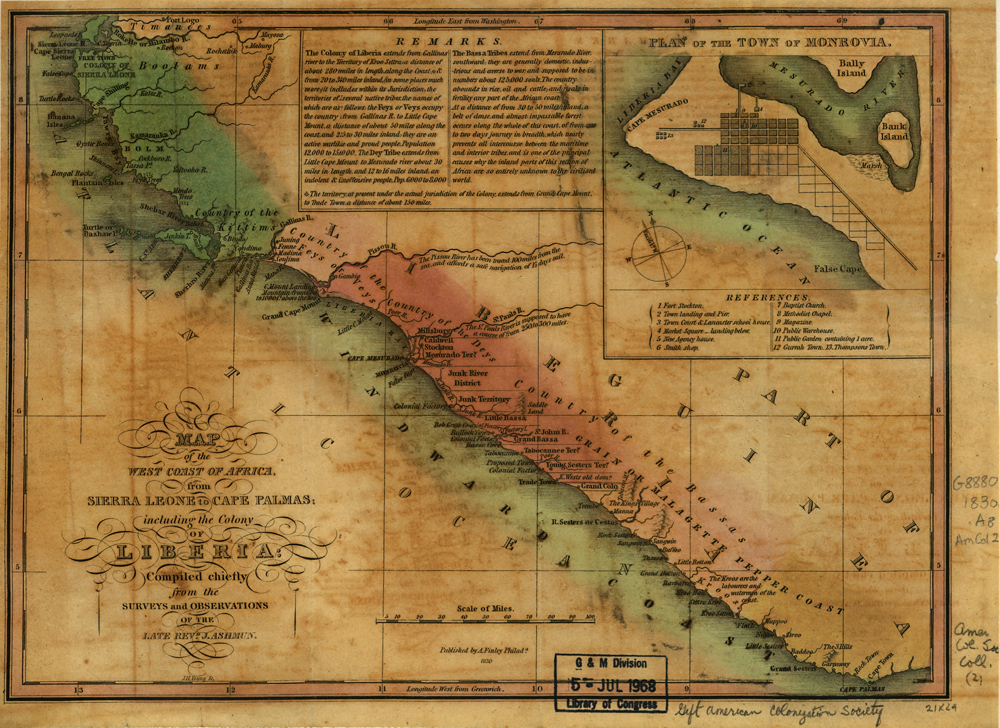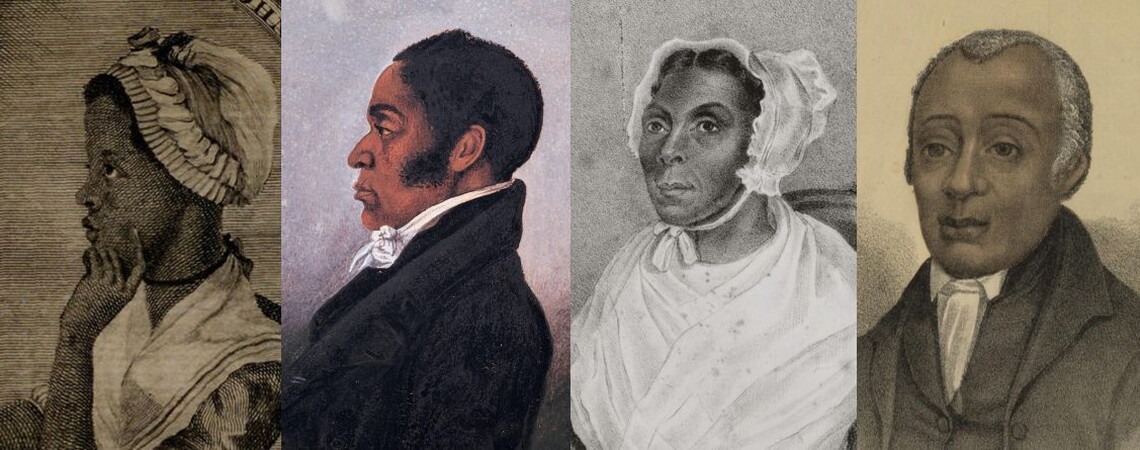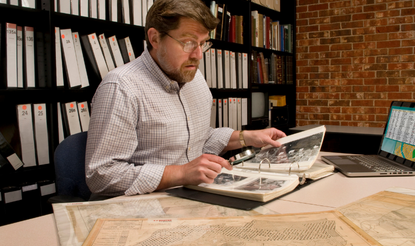African Americans and the Making of Liberia
by Claude A. Clegg III
American national identity has historically been based on the conception of the United States as a nation of immigrants—a place where people choose to come to, not flee from. However, there is a long and fascinating history of Americans seeking refuge abroad, sometimes in exile, that is also part of the American story. This history is somewhat at odds with our national identity as Americans, especially given the tendency to imagine the country as a sanctuary for people fleeing tyranny, persecution, and poverty elsewhere. But numerous groups at various times—whether American Mormons relocating to Mexico in the 1800s or US draft evaders fleeing to Canada in the twentieth century—have fallen out of our national narrative as an immigrant nation precisely because their stories counter our popular notions about the meaning of America and bring into question the accessibility of our highest values concerning freedom, equality, and the democratic promise. Among the groups who have felt compelled to leave the country in search of freedom abroad are thousands of African Americans who did so during the course of the nineteenth century. Their story is as much a part of the American experience as any other.
What became the West African colony and later the Republic of Liberia was rooted in the American Revolution of the late 1700s and the struggle to deal with the new country’s twin burdens of race and slavery. The uncomfortable fit of ongoing Black bondage with American high ideals as articulated in the Declaration of Independence and Constitution was a stark reminder that the war for independence had not freed all from oppression and exploitation. Compromises over slavery would abound during the nineteenth century, each aimed at avoiding a violent, divisive conflict over the existence of the institution. One such proposal involved relocating freed African Americans to Africa in the hope that their disappearance from American soil might remedy both slavery and racial tensions.
In December 1816, a group of men met in Washington, DC, to form the American Colonization Society (ACS). The new organization’s purpose was, in its own words, “to promote and execute a plan for colonizing (with their consent) the Free People of Color residing in our Country, in Africa, or such other places as Congress shall deem most expedient.” Although it had a single goal, that is, the removal of free African Americans to Africa, the motivations of the Society’s founders were quite diverse.
There were slaveholders among the members of the ACS who feared that free Blacks set a bad example for enslaved people—that is, made enslaved people aspire to be free—and wanted the numbers of free African Americans in the country reduced. Actually, the free Black population, largely due to the ending of slavery in northern states following the American Revolution, had grown in size more rapidly than the enslaved population. In 1790, there were 59,000 free Blacks in the United States and 700,000 people in bondage. In 1810, the enslaved population had increased only 70 percent, from 700,000 to 1.2 million people, while the free Black population had increased from 59,000 to 186,000, a 215 percent increase for the same twenty-year period. Slaveholding members of the ACS insisted that the organization not mention general emancipation or even limited abolition in its charter. The ACS, not wanting to alienate White southern supporters, obliged.
In addition to slaveholders, the ACS attracted people who were genuinely interested in ameliorating the conditions of Blacks, both enslaved and free(d) people. Some simply did not believe that free Blacks or liberated bondspeople would ever be accepted by a majority of Whites as fellow citizens sharing the same rights and immunities, and thus thought it best to relocate them outside of the United States. There were those members who saw the organization as an instrument for liberating enslaved people, and a number of slaveholders would eventually agree to free their slaves for the expressed purpose of sending them to the ACS’s colony of Liberia on the West African coast. With their large African American populations and deepening commitment to slavery, southern states were the primary sources of Liberia-bound emigrants during the antebellum period and beyond.
From its founding in 1822 until the end of the century, about 16,000 American Blacks settled in Liberia. The vast majority were from southern states, such as Virginia, Georgia, North Carolina, and Maryland. Additionally, about 6,000 African recaptives—people rescued from transatlantic slave ships intercepted by the US Navy—were settled in Liberia during the nineteenth century. In general, the conditions of life were difficult for American immigrants in Liberia. The vast majority of people who came were poor, and many had recently been in slavery in the United States. Few were prepared for life along a tropical frontier where ailments of various sorts flourished, including a virulent strain of malaria that killed 20 percent of all immigrants during the first generation of colonization. Along with disease, Liberia’s founding was marked by incessant conflicts with indigenous Africans, who were dispossessed of land and sovereignty. Ironically, while African Americans had come to Liberia for freedoms and rights that were denied them in the United States, the settlers constructed a colony (which became a republic in 1847) that largely excluded Africans—whom many settlers believed to be uncivilized and heathen—from the political and social life of Liberia.
The voices, aspirations, and goals of most Liberian immigrants have not been preserved in the historical record, with the exception of major figures such as Lott Carey, Joseph Jenkins Roberts, and John Russwurm. However, the records of the ACS do contain a rich array of letters written by selected immigrants that provide a window into their experiences. Coursing through much of this correspondence is the notion of diaspora—that is, a salient sense that Blacks in America felt that they had been uprooted, via the slave trade, from some pristine ancestral origin. Many immigrant writers portrayed Africa as their natural homeland and wrote in romantic ways about the continent and its people. Only after experiencing the hardships of life in tropical Africa did some become disabused of notions that they were “Black” or “African” in any monolithic way. Conflict with local African communities would continue throughout the nineteenth century, reminding the American settlers that they were not truly welcome in the region, just as they had not been in the United States, the land of their nativity.
Ultimately, the idea of colonizing Liberia had limited appeal to African Americans or Whites who were dedicated to the abolitionist movement. Their opposition to the Liberian experiment was further galvanized by the prominence of slaveholders among the ACS’s supporters, as well as the half-hearted support that the US government sporadically provided for Liberian colonization. While President Abraham Lincoln officially recognized Liberia in 1862, the country was little more than an afterthought in US foreign policy and international engagements until the twentieth century. During World War II, the US government benefitted from the strategic use of Liberian ports and other facilities, and US corporate interests increasingly turned their attention to Liberia’s natural resources. But this US experiment in nation-building in Africa—with its lofty initial aims of resolving the American dilemmas of slavery and race and forestalling a civil war—has largely been erased from popular understandings of American history and conceptions of the nation as one of immigrants, not of exiles. Still, the story of African Americans in Liberia is, at its core, a fundamentally American one that reveals how race, place, and culture have shaped Black lives and experences, offering insight into the complications, contradictions, and possibilities inherent in American identities on both sides of the Atlantic.
Selected Bibliography
Burin, Eric. Slavery and the Peculiar Solution: A History of the American Colonization Society . Gainesville: University Press of Florida, 2005.
Clegg, Claude A., III. The Price of Liberty: African Americans and the Making of Liberia. Chapel Hill: University of North Carolina Press, 2004.
Hall, Richard L. On Afric’s Shore: A History of Maryland in Liberia, 1834–1857. Baltimore: Maryland Historical Society, 2003.
Shick, Tom W. Behold the Promised Land: A History of Afro-American Settler Society in Nineteenth-Century Liberia . Baltimore: Johns Hopkins University Press, 1980.
Staudenraus, P. J. The African Colonization Movement, 1816–1865. New York: Columbia University Press, 1961.
Claude A. Clegg III is the Lyle V. Jones Distinguished Professor of History at the University of North Carolina at Chapel Hill. He is the author of An Original Man: The Life and Times of Elijah Muhammad (St. Martin’s Press, 1997; repr. University of North Carolina Press, 2014), The Price of Liberty: African Americans and the Making of Liberia (University of North Carolina Press, 2004), and Troubled Ground: A Tale of Murder, Lynching, and Reckoning in the New South (University of Illinois Press, 2010). He is the editor of Africa and the African American Imagination (ProQuest and Schomburg Studies of the Black Experience, 2007).



